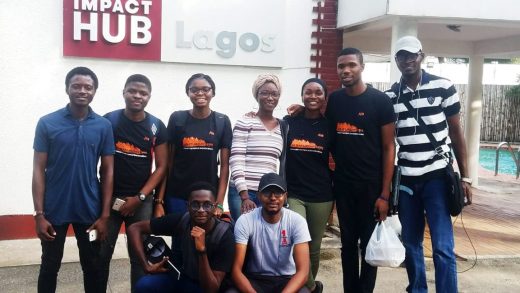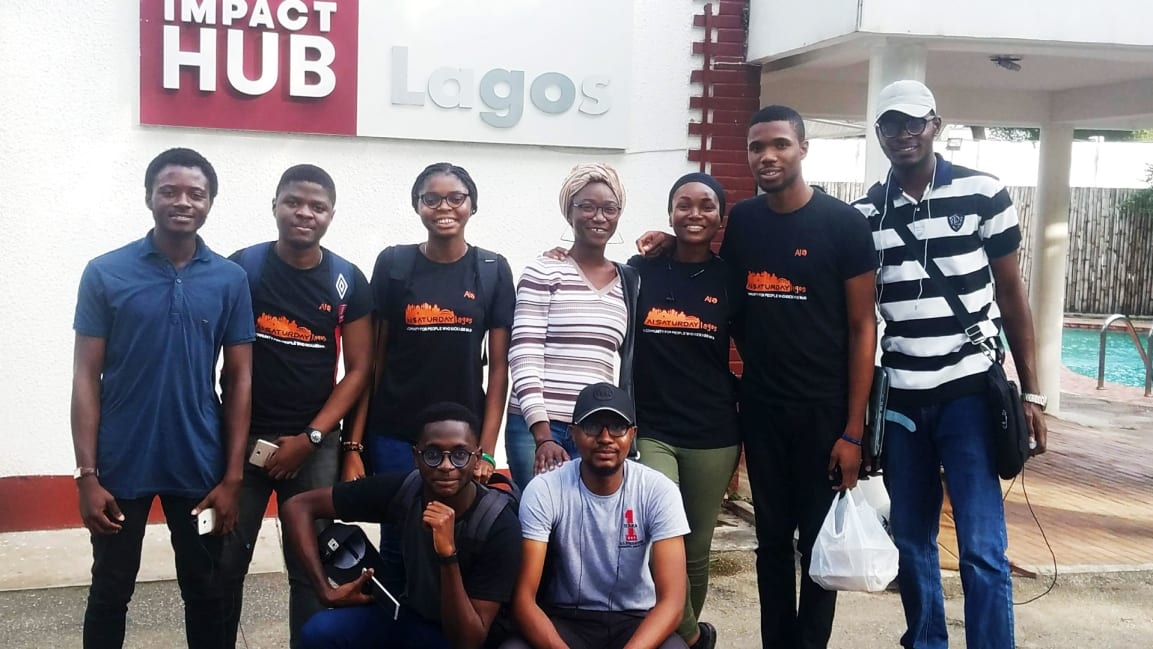How Africa is seizing an AI opportunity
Tejumade Afonja was interested in artificial intelligence (AI) for years. She just wasn’t sure there was a name for it. “I didn’t know what it was called at the time,” she says.
Instead, the now 24-year-old Nigerian got as close to as AI as she knew how and threw herself into an engineering degree. Over a chance discussion about NASA’s Curiosity Robot, she decided to learn about robotics and taught herself to code with online classes like MIT’s Introduction to Python. That led her an internship with kudi.ai, a startup building a finance app. A trip last year to a data science conference in Nairobi where she met then Microsoft researcher Timnit Gebru and other African academics crystalized everything. “That was the ultimate moment for me,” Afonja says.
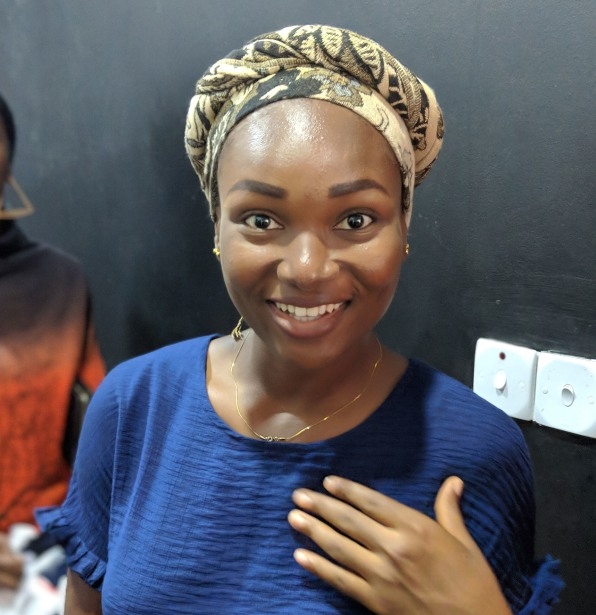
She came back to Lagos, quit her internship, and dedicated herself to AI, including starting a local chapter of AI Saturdays, a 16-week free class that helps anyone learn about AI. Forty people signed up, and the initiative helped get her a job at InstaDeep, an African AI company. At AI Saturdays, Afonja and a group of volunteers built their own app, ChowNet, a system that identified Nigerian foods that takes inspiration from ImageNet, a dataset that underpins many of the deep learning advances over the last half-decade.
AI Saturdays Lagos welcomed its third cohort in January. Over 800 people tried to sign up, although the space they were able to crowdfund for only holds 100. The interest and progress Afonja sees with students at AI Saturdays and the rest of the work being done in technology hubs and universities across the continent gives her hope that African researchers can have a bright future in AI.
“We could compete,” she says. “AI is something Africa could do along with everyone else.”
But competing won’t be easy. Afonja’s work on ChowNet earned her a presenter spot at the Black in AI workshop at last year’s NeurIPS, one of the most preeminent AI conferences in the world. The conference marked a milestone for AI in Africa more widely: 2018 was the first time research papers from an African institution were accepted for presentation at NeurIPS’s main track since the conference began 31 years ago. Over 8,500 attendees converged on Montreal for academic talks, conversations with job recruiters, and social events.
Afonja would have been among them, had her visa and those of over 100 of the African researchers not been denied or not processed in time. She ended up having to do her presentation via a video call.
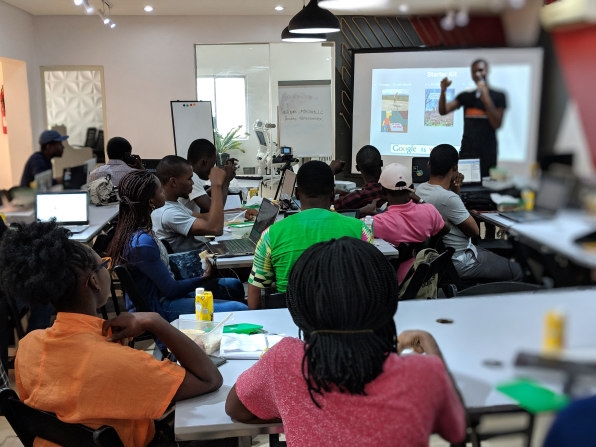
Countries that don’t welcome African researchers, even for conferences, are missing out. The vast majority of cutting-edge AI is still done in places like Silicon Valley, London, and Shenzhen, but the fight for AI talent is real, and the rest of the world is starting to notice the rich AI possibilities in Africa. Google just opened an AI Research Lab in Accra, Ghana. AI firm SingularityNET, one of the companies behind the controversial Sophia robot, has an office in Ethiopia, a growing hotspot for AI research, with more local partnerships in the works. Organizers of a major AI conference, the International Conference on Learning Representations, said in November that the 2020 event will be held in Addis Ababa, Ethiopia in an effort to strengthen collaboration with scientists across Africa.
“Africans aren’t sitting by,” says Karim Beguir, the founder of InstaDeep. Five years ago he left his finance job in London and returned to his native Tunisia to launch InstaDeep with two laptops. Now the company has five offices across the continent and just closed its series A funding for $7 million. “They are taking part.”
Partly, demographics are destiny: 60% of the population in Africa is under the age of 25, and a growing number of students are exploring careers in computer science and machine learning. Universities are trying to meet the demand. In South Africa, the Center for Artificial Intelligence Research (CAIR), founded in 2011, operates a research network with nodes at five universities. In Nairobi, Strathmore University established the @iLabAfrica Research Center, which seeks to promote cutting-edge research in AI, among other emerging technologies. And the University of Lagos in Nigeria recently opened an AI Hub that will focus on deep learning and tools to collect data.
A growing interest among investors is helping too. According to a WeeTracker report, venture investors put a record-breaking $725 million put into African tech startups in 2018, up from $277 million in 2015.
Level up the world
In a recent paper, “Artificial Intelligence for Africa: An Opportunity for Growth, Development, and Democratisation,” London-based consultants Access Partnership and researchers from the University of Pretoria point to several areas that will benefit from AI, including agriculture, healthcare, public services, and financial services. The paper details how Africa as a whole faces some of the same problems that face the West, like education systems that need to update their offerings and ethical guidelines to sort out.
Even the African countries most positioned to take advantage of AI have additional hurdles to overcome, like investing in better broadband, getting hold of necessary data, and improving the overall engineering skill base.
Some African research areas also require local knowledge and development of tools created explicitly for new audiences and unique problems. Many East Africans rapidly code-switch between languages, often multiple times per sentence. The work being done by most natural language processing researchers relies on mostly single-language datasets, and aren’t usually even African languages. And AI built around farming in the West doesn’t always scale down to the smaller family plots that still make up much of African agriculture.
Dr. Mercy Lung’aho, a nutritionist and research scientist at the International Center for Tropical Agriculture (CIAT) in Nairobi, is working on developing an AI to spot nutrition crises across Africa before they happen. The system, called NEWS, analyzes satellite imagery, as well as data like rainfall, temperature, and vegetation health to make predictions about crop health and nutritive value. Lung’aho says that AI could help people across the continent, provided that researchers focus on critical local issues.
“AI has to solve our serious problems like nutrition and food security before we figure out autonomous cars,” she says.
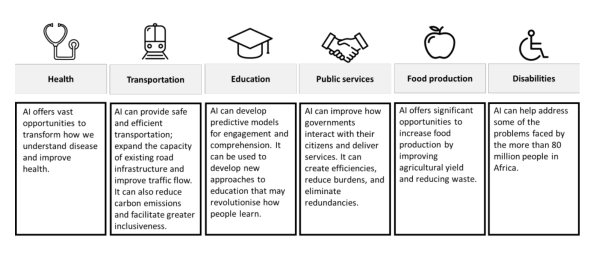
The needs of Africa could also push AI technology further along for the world at large. Many datasets available for African projects are limited, so the research being done is helping to shrink the size of datasets needed to accurately train algorithms. The lack of internet infrastructure in some areas is already propelling edge technology–AI that can be done on the device–getting rid of the reliance on cloud services. This makes AI programs run faster and more securely for sensitive data, like personal information.
“Programmers will come up with ways to find solutions for less computing power,” says Hruy Tsegaye, a project manager at iCog Labs, an AI startup, in Addis Ababa. “This is one area that Africans could lead.”
As African researchers build up better stores of the reliable data upon which machine learning relies, they are also helping build better sets of data for scientists and AI companies everywhere. A Chinese company called CloudWalk is already working with the Zimbabwean government to build a facial recognition program across the country, while a Russian company is selling face recognition technology across South Africa and Kenya. These systems are known to be less accurate for dark-skinned faces, especially women. Gathering data across Africa could go a long way to improving their algorithms, even as questions over reliability and privacy remain unsolved.
These types of innovations could lead to a leapfrogging in AI, much in the way Africans mostly bypassed the personal computer revolution and went straight to mobile phones, according to Beguir, the InstaDeep founder.
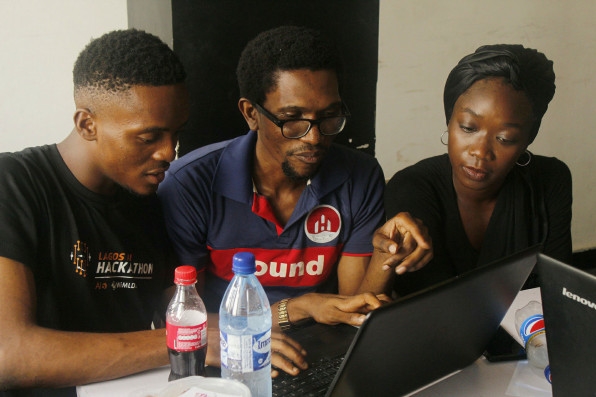
Beguir thinks that catching up to the West in AI—and possibly leapfrogging it—depends on four factors: a vibrant ecosystem of entrepreneurs, expert knowledge in Africa, data, and policy. He’s already seeing some traction in areas like data and expert knowledge being developed at universities and companies like his, and countries like Kenya and Tunisia are already working on national AI strategies. When it comes to getting involved in the global AI discussion, “Africa is hungry,” Beguir says.
A NeurIPS of their own
As the continent’s AI credentials steadily pile up, Africa’s researchers are keen to ensure they can reap the dividends, too. Africa has been exploited for its resources for centuries. AI could lead to a new kind of unsustainable and rapacious extraction, with data replacing diamonds. The pull (and pay) of tech giants might also weaken the continent’s AI industry before it has time to take off. Many African researchers are concerned about brain drain.
“A network of African institutes of artificial intelligence, for example, could retain the best talents on the continent, enlist world-class African scientists to tackle AI challenges in the African context, and collaborate with existing academic institutions,” Moustapha Cisse, the Google lead for the Accra office, wrote in Nature last year.
To build that sustainable homegrown industry, organizers put on the first Deep Learning Indaba in Johannesburg in 2017. The Indaba, which is a Zulu word for meeting or gathering, was a weeklong event focused on teaching and networking for African researchers and students. The second Indaba in 2018 had 500 participants from more than 20 African countries.
“There is a real feeling of belonging,” says Ulrich Paquet, a South African DeepMind researcher and one of the organizers. He also points out that while it’s impossible to network with 8,500 people, a smaller network like Indaba could build meaningful, and more local, relationships.
To keep the momentum going for the rest of the year, the lead organizers raised money and offered it to people who wanted to do daylong IndabaX workshops and hackathons. Last year, 13 countries took part; 26 workshops are on the books for this spring. Paquet said they offer resources to local organizers, but organizers are free to design the day around local needs.
“AI is booming in Africa,” Paquet says, “but it’s booming from the grassroots.”
(33)

